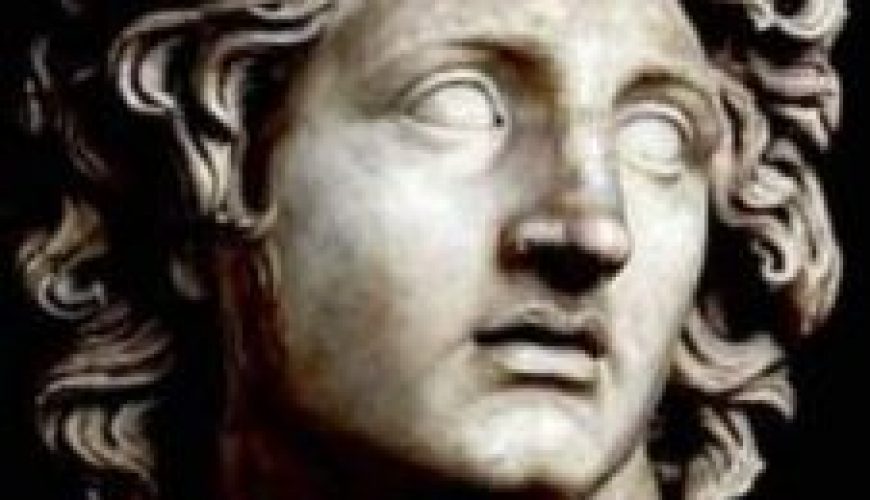Alexander III of Macedonia: He is the third to bear the name Alexander in the family of Aegis. He is known by many other names, most notably “Alexander the Great, Alexander the Great, Alexander the Great, Alexander Dhul-Qarnayn and in Greek “Ἀλέξανδρος ὁ Μέγας.” He is one of the Greek kings of Macedonia and one of the most famous military leaders and conquerors. Throughout history, Alexander was born in the city of Pella around the year 356 BC. He was an associative pagan of Greek religion. He was a student of the famous philosopher and scientist Aristotle until he reached his sixteenth year, participated with his father in the 18th battle of Chaeronea, and ascended the throne of Macedonia at the age of 20. After the assassination of his father, and by his thirtieth year, he had established one of the largest and greatest empires known to the ancient world, which extended from the coasts of the Ionian Sea in the west to the Himalayan mountain range in the east. fought it at all.
Alexander succeeded his father, Philip II of Macedon, “the one-eyed” on the country’s throne in 336 BC. After the latter was assassinated, Alexander inherited a solid kingdom and a strong army with veteran soldiers from his father. He was given the right to command the armies of all of Greece, so he used that to achieve goals. His expansionist father set out in 334 BC on a campaign against Persia. He managed to defeat the Persians and expel them outside Asia Minor. Then he proceeded to extract their possessions one by one in a series of military campaigns that lasted ten years. Alexander managed to break the Persian army and destroy the military power. The Achaemenid Persian Empire had several decisive events, most notably the two battles of Issus and Comilla. Eventually, Alexander was able to overthrow the Persian Shah Dara III and conquer the entire territory of his empire. The lands under his control extended from the Adriatic Sea in the west to the Indus River in the east.
Alexander was seeking to reach (the end of the world and the great outer sea), so he invaded India in 326 BC in an attempt to discover the way to that sea. Alexander died of typhoid fever in Mesopotamia (Babylon) in the year 323 BC at the age of 32 Mesopotamia (Babylon) 323 BC at the age of 32 and was mummified to be buried in Alexandria of Egypt before he embarked on several new military campaigns planned by him.
Alexander the Great
August 5, 2021
0 comment


Comment (0)